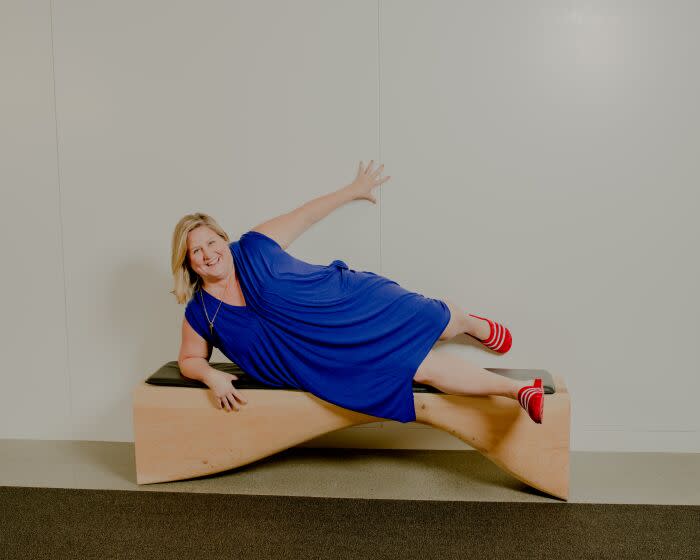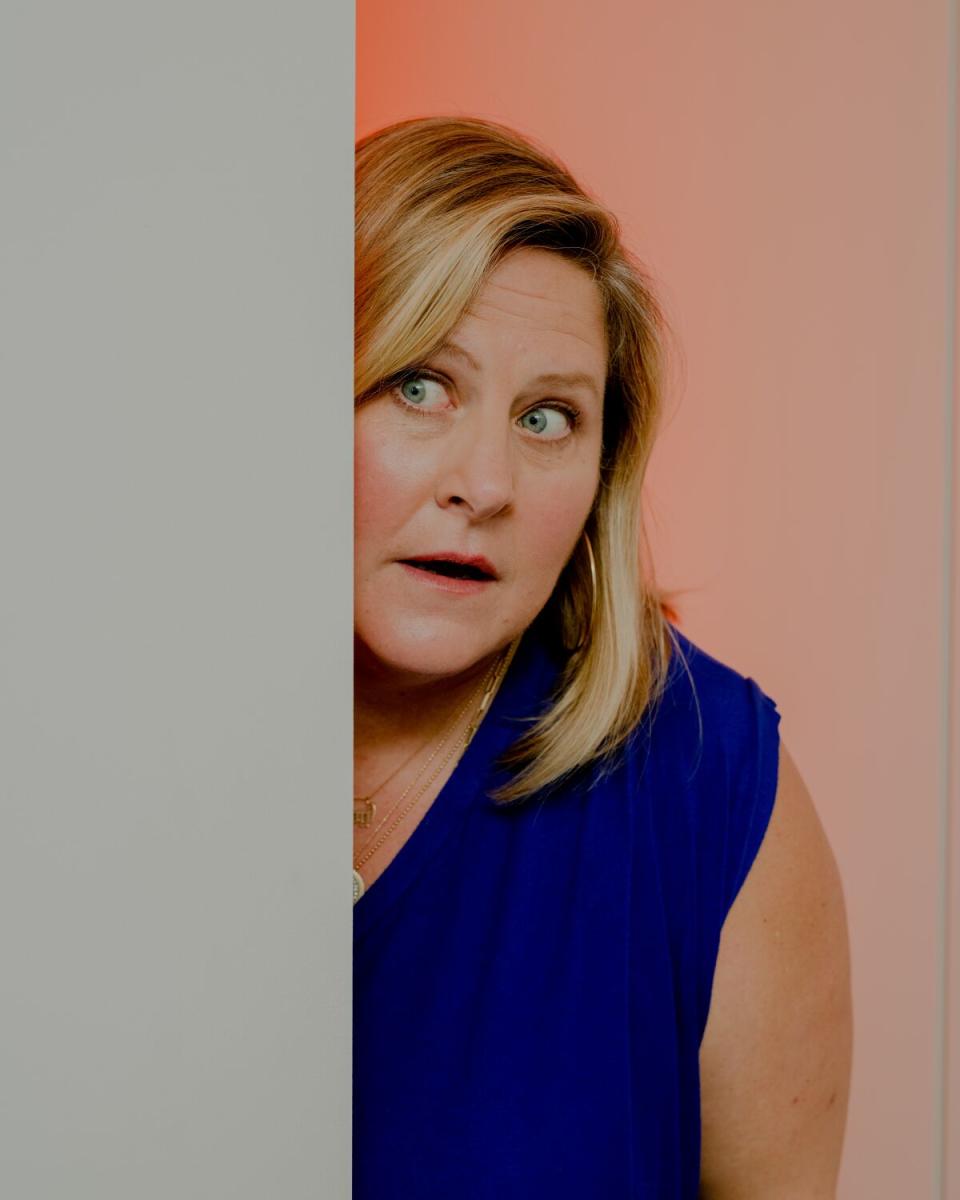Tolerance and inclusion at the heart of Bridget Everett's bawdy 'Somebody Somewhere'

- Oops!Something went wrong.Please try again later.
- Oops!Something went wrong.Please try again later.
A key scene from Season 1 of HBO’s “Somebody Somewhere” finds Bridget Everett’s Sam getting up before an appreciative crowd and belting out “Piece of My Heart,” the romantic barn-burner made famous by Janis Joplin. Sam begins a little tentatively but quickly rises to the occasion, ripping open her shirt at the song’s climax. It’s a moment of unbridled energy, the kind Everett has been delivering regularly as a popular New York alt-cabaret performer. On the show, it’s Sam’s big moment of self-actualization.
Sam, like Everett, has a big personality. But that’s only one part of the series, a semiautobiographical comedy/drama about a woman in Manhattan, Kan., learning to love herself and reengage with life after the death of her sister. Now in its second season (and recently renewed for a third), "Somebody Somewhere" is a series of many tones, some ribald and raunchy, some deeply introspective, all reflective of a performer who has worked extremely hard to get here.
“At her core she’s actually a little bit shy,” says Mary Catherine Garrison, who plays Sam’s surviving sister, Tricia, and who roomed with Everett for 10 years in New York. “That is not something you would ever think seeing her perform onstage, but it is something that you get to see in the show that you wouldn't expect if you knew her professional performing life.”
Sam, Everett wants to make clear, is not the same as Bridget. “If it was a show about me, there would be no narrative,” Everett says in a video call on an April day from her New York
apartment. “It would just be like, ‘And she retreats to her bedroom again.’ Sam lays herself a little more bare than I do, and I like that about her. It makes me want to do the same thing.
“Sam struggles with the one-step-forward, two-steps-back of it all, and scratching your way back into life. It's such a slow crawl for her, and I really can relate to that.”

Indeed, Everett, 51, is about the furthest thing from an overnight success that one could imagine.
Born and raised in Manhattan (again, Kansas, not New York), she studied music and opera at Arizona State University and eventually found her way to New York, where she waited tables and made a local name performing at clubs, earning a longtime residence at the East Village music venue/restaurant Joe’s Pub. Everett’s cabaret act, bawdy and very interactive, is known for hilariously profane songs, parts of which make their way into “Somebody Somewhere.” Along the way she made some famous friends and fans, including Patti LuPone and Amy Schumer, and began performing outside of New York. She picked up supporting screen work, including a role as the mother of an aspiring rapper in the film “Patty Cake$.”
When “Somebody Somewhere” creators Hannah Bos and Paul Thureen pitched Everett the idea for the show, her ears immediately pricked up. She, too, had suffered through the death of a sister. Like Sam, she expresses herself through song. She saw a chance to work with what she calls her “New York showbiz family,” including Garrison, an accomplished Broadway actor, and Murray Hill, the scene-stealing drag king who plays agriculture professor Fred Rococo in the series and whom Everett has been performing with for several years. She rolled the dice. And now she’s the heart of a show with a fervent and growing fan base, on which she’s also a writer and executive producer.
A big part of the “Somebody Somewhere” appeal is its effortless sense of tolerance and inclusion. The series spotlights a Midwestern community that wears its LGBTQ friendliness with a shrug. Sam’s gay best friend, Joel (Jeff Hiller), Fred Rococo and a group of comrades gather for “choir practice,” an underground, weekend gathering of song and socializing held at the local church. “Somebody Somewhere” has a huge heart, but it doesn’t preach. Instead it simply imagines a world where everyone is welcome, and it doesn’t flinch from Sam’s neediness and contentious relationship with her family. (In the second season, when Joel gets a boyfriend and neglects to tell Sam, she is deeply hurt).
“The point of the series,” Everett says, “is to show how we're all people and we're all getting by and we're all doing the best we can. It's not snarky, and it showcases some people you might not normally see on TV. We're all kind of 40s-ish. None of us are top models. And it shines a light on the Midwest in a way that I think is pretty cool.”
“Somebody Somewhere” has also paid practical dividends for Everett. For one, she doesn’t have to wait tables anymore. “I know it's a good way to make a living, and I did it for 25-plus years, but your back starts to hurt,” she says.
According to Garrison, her old roommate and current castmate, it’s been a long time coming.
“Most of the world wasn't telling her to keep going, and she kept going,” Garrison says. “She did it. She blew everything wide open by being so true to herself. I just can't imagine someone more deserving of all the things that are happening for her.”

This story originally appeared in Los Angeles Times.

